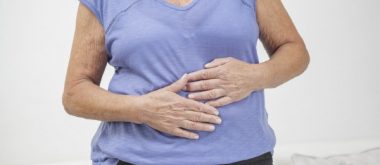Women across the world will one day undergo menopause. While the experience can be unpleasant, a recent study also showed it might increase bad cholesterol.
Keeping cholesterol in check is important for overall health. The body consists of two different kinds of cholesterol. The one that everyone should be concerned with is called LDL cholesterol. A study published by the Journal of the American College of Cardiology found that women who underwent menopause also had an increase of LDL cholesterol by 10 points. While this number might be small, women who already experience problems with their cholesterol or heart may be lunged into lethal or extremely risky categories for their health.
To ensure you keep yourself in the best health possible, this article will discuss menopause, its relationship with cholesterol and what you can do to prevent and reduce your cholesterol levels.
Menopause
As a woman ages, her body gradually reduces its estrogen production. It’s the hormone estrogen that allows a woman’s body to be prepared for fertilization to have children. Once the woman has left that peak age of childbearing, the body starts to shut down those processes. Menopause can be an unpleasant experience. Women typically experience hot flashes and night sweats, and they may even see a rise in aggression and moodiness.
Menopause can also affect your sleep and give you bouts of insomnia. While the more severe symptoms of menopause can fade with time, for many women, waiting it out often seems too long. The study also found that menopause increases the amount of LDL in the body. This could be what causes many women who are experiencing this process to have strokes, heart attacks, and other cardiovascular conditions.
Some doctors believe that the rise of cholesterol is caused by the decrease of estrogen in the body because estrogen is the hormone responsible for regulating many different processes. Without estrogen’s performing its job, cholesterol is no longer held in check.
Prevention and Reduction of High Cholesterol

In this way, estrogen keeps the body performing like it had always done. Cholesterol levels won’t spike due to the end of menstruation. However, hormone-replacement therapy does have its share of possible side effects. In some cases, it was shown to increase the number of strokes and even the development of breast cancer.
Statins
Another option is to use statins. These are medications specifically designed to lower cholesterol in the body. Of course, statins also come with their own share of side effects. However, in the event that someone is at severe risk of high cholesterol, statins could be a powerful tool for a last-ditch effort to lower cholesterol.
Lifestyle Changes
The most effective way to reduce cholesterol rests in lifestyle changes. One of the first steps that you can take is to reduce the amount of saturated fats that you consume. These exist primarily in red meat and full-fat dairy products. By reducing how much of them you eat, you should notice that your LDL starts to decrease.
Another lifestyle change to make is removing trans fats from your diet entirely. These primarily exist in cookies, crackers, and cakes. Trans fats come from partially hydrogenated vegetable oil. Eliminating them should become a little easier since the FDA has banned the use of partially hydrogenated vegetable oil in products by 2021 in January. However, you should do what you can to avoid trans fats in your diet immediately.
Exercise is another great way to reduce your cholesterol. Even something as simple as a brisk walk can help you keep your levels down. At the same time, this raises your good cholesterol.





